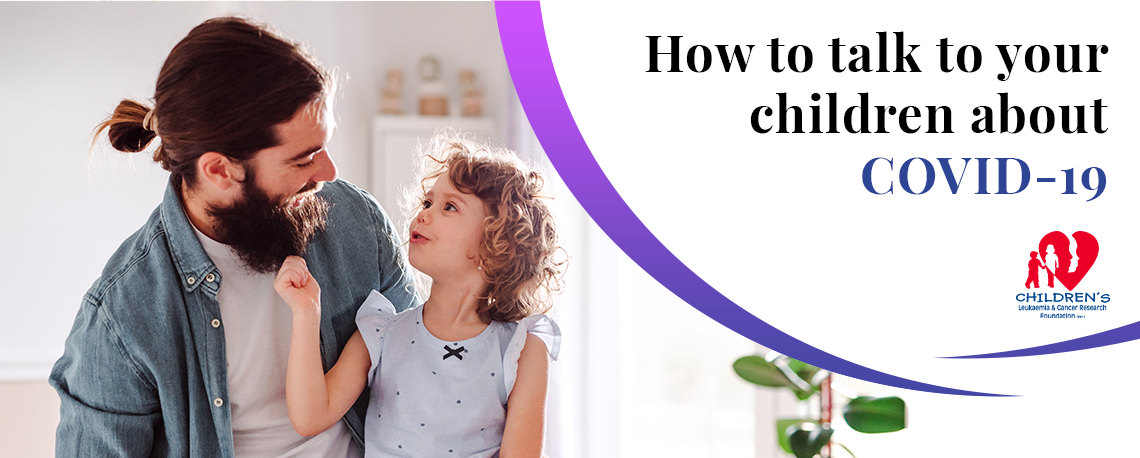
How to talk to your children about COVID-19
With the recent COVID-19 outbreak, parents all over the world are facing the same problem: how to explain this uncertain time to their children in a way that doesn’t distress them. Here are some of the best tips about how to inform your kids about the pandemic, while helping to limit their fears.
Be age-appropriate
Kids of all ages need to know what’s happening, especially since they are probably already hearing about it on TV, radio, social media, as well as from other people. Talking to your children is important to help them cope with what’s going on but it’s important that they are told in an age-appropriate manner.
Keep the information simple and brief for younger kids and offer more detail for older kids. It’s important to keep the information positive as possible in terms of what the world is doing to stop the spread of the virus. Be sure to get your information from trusted sources. We recommend looking at the WA Department of Health website for the latest information and advice.
Show them how to protect themselves
The safest way to keep children safe from COVID-19 and other diseases is by simply encouraging good hand hygiene. Show your children how to properly wash their hands, with soap and water for at least 20 seconds.
Be a good role model and let your kids see you washing your hands often! You can even make this fun for the kids by encouraging them to sing a bit of their favourite song or by singing Happy Birthday twice.
It’s also important that your children know how to cover their coughs and sneezes with their elbow or tissue. If they do use a tissue, they should put it straight in the bin after.
Stay calm and offer reassurance
Kids pick up on when parents are worried or anxious. So, when you are talking about COVID-19 with your children, be sure to use a calm voice and try not to seem upset.
Remind your kids that most people will make a full recovery from the virus and although they might catch it, it is unlikely to make them feel very sick. However, it is still important that they are aware on how it can affect the elderly and immunity-compromised people differently. If your kids are worried about their grandparents, let them call or video chat with them so they feel reassured.
Tell your children that if we listen carefully and continue to do the right thing, it will all be okay. You can also offer them confidence by telling them that scientists all over the world are working hard to develop a vaccine.
Be there for them
The most important thing is to simply be there for your child. Let your kids know that it’s normal to feel stressed or worried at times. Recognise these feelings and remind them that stressful times pass, and life will go back to normal.
It is important to keep checking in with your child. News about the outbreak is constantly changing and your child’s feelings and questions about it might too. Help them think through any stories they hear and offer your support.
If your child is naturally anxious, like many children are, this news may push them towards panic. Be on alert for highly anxious behaviour such as trouble sleeping, loss of appetite, over-eating, clingy behaviour, excessive worry, and social withdrawal. If you believe your child is overwhelmed by the situation, you should seek help from your GP.
For updates on CLCRF’s ongoing response to COVID-19, please check our website regularly and follow our Facebook, Instagram and LinkedIn pages. You can also subscribe to our email newsletter to get our latest updates straight to your inbox.
